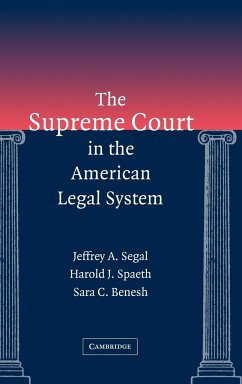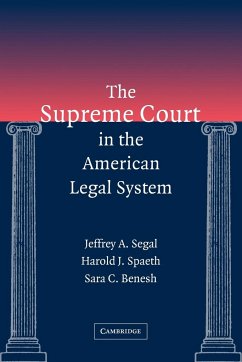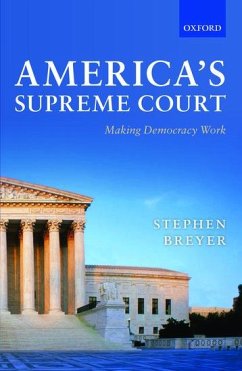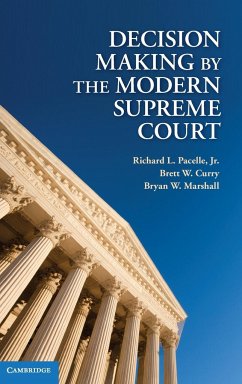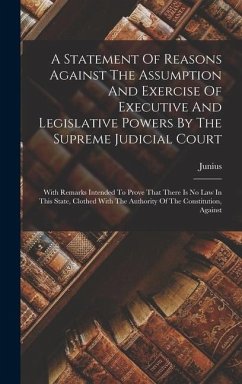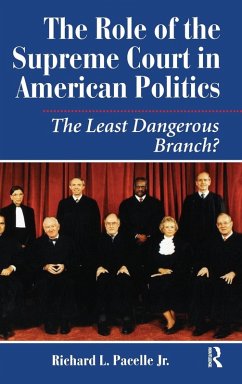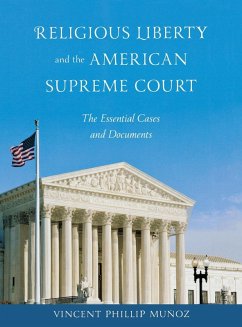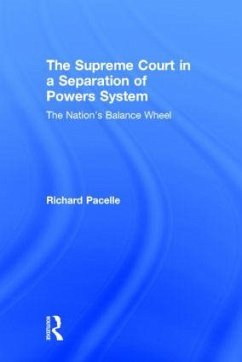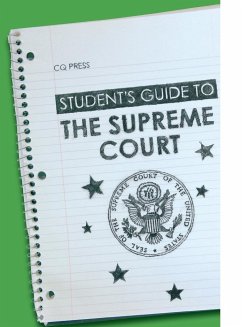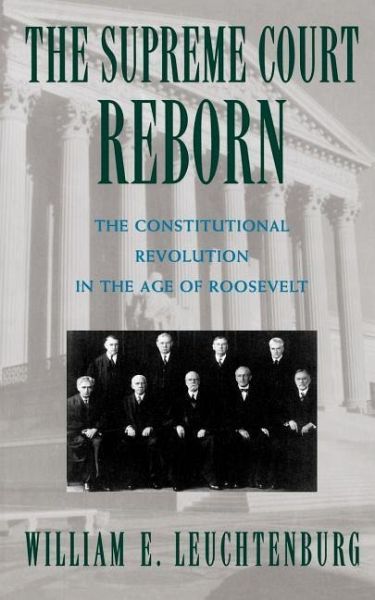
The Supreme Court Reborn
The Constitutional Revolution in the Age of Roosevelt
Versandkostenfrei!
Versandfertig in 1-2 Wochen
55,99 €
inkl. MwSt.
Weitere Ausgaben:

PAYBACK Punkte
28 °P sammeln!
Among the surprises was Senator Hugo Black, who faced widespread opposition for his lack of qualifications when he was appointed as associate justice; shortly afterward, a reporter revealed that he had been a member of the Ku Klux Klan. Despite that background, Black became an articulate spokesman for individual liberty. William E. Leuchtenburg is one of America's premier historians, a scholar who combines depth of learning with a graceful style. This superbly crafted book sheds new light on the great Constitutional crisis of our century, illuminating the legal and political battles that created today's Supreme Court.
To validate the revolutionary legislation of the New Deal, Franklin Roosevelt had to fight a ferocious battle against the opposition of the Supreme Court. Benefits like Social Security may now be seen as every American's birthright, but it took a Constitutional revolution to wrest such reform from the jaws of a laissez-faire Court. In "The Supreme Court Reborn," William E. Leuchtenburg deftly portrays the events leading up to Roosevelt's showdown with the Supreme Court, from the Court's relentless invalidation of regulatory laws to Roosevelt's notorious "Court-packing plan" which would have allowed the president to add one new justice for every sitting justice over the age of seventy. In fascinating detail Leuchtenburg shows that as a consequence of the Constitutional revolution that began in 1937, not only was the New Deal upheld (as precedent after precedent was overturned), but the Court also began a dramatic expansion of civil liberties that would culminate in the Warren Court. This superbly crafted book sheds new light on the great Constitutional crisis of the century, illuminating the legal and political battles that created today's Supreme Court.





